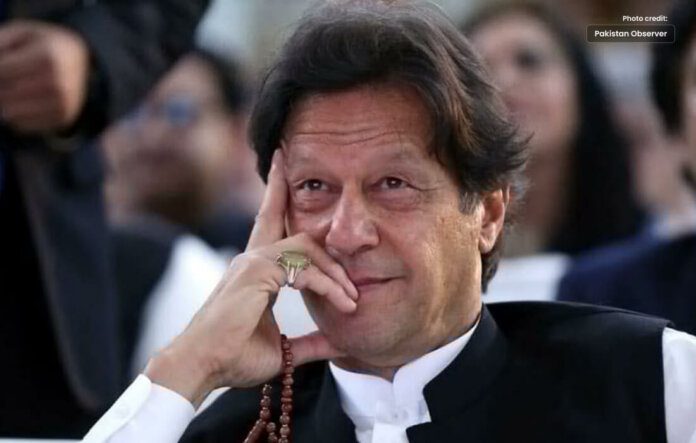IHC ordered release of PTI Chairman, Imran Khan in Toshakhana case.
The much-awaited reserved judgement was announced ordered the release of PTI Chairman Imran Khan by a division bench of the IHC, which was made up of Chief Justice Aamer Farooq and Tariq Mehmood Jahangir. The court announced that a copy of the verdict would be made soon available.
The defendant in this case, the Election Commission of Pakistan (ECP), had already finished his legal defense the day before.
Both within and outside the IHC buildings, a sizable presence of police and paramilitary Frontier Constabulary are on duty. Aleema and Uzma Khan, Imran’s sisters, also arrived at the court on their own.
Suleman Safdar, the PTI leader’s attorney, has in the meanwhile petitioned the court to prevent the Federal Investigation Agency, National Accountability Bureau, and the police from detaining him in any other cases.
The defense team for Imran has asked for this plea to be heard by the court today.
Hearing Earlier
As the IHC bench started hearing the case on Monday, Amjad Pervaiz, the main counsel for ECP, provided in-depth justifications in response to Imran’s lead attorney Latif Khosa’s objections.
Khosa argued that Imran’s sentence should be suspended at the case’s first hearing on August 25 due to the ECP’s unauthorized filing of a complaint, lack of jurisdiction, the fact that Imran was only given a three-year sentence, the trial court’s deprivation of his right to a defense, and the fact that the order was given without considering arguments regarding the complaint’s maintainability.
Pervaiz said that there was nothing improper about the way the ECP filed a complaint against Imran at a district and sessions court while outlining the reasons why the state of Pakistan needed to be served with notices as a respondent in the case.
The chief judge did, however, point out that the ECP directed its staff to file a complaint rather than the ECP secretary, who is legally qualified to do so. Could someone else submit a complaint except the secretary? Could the DG of the ECP also submit this complaint?” he questioned.
The attorney retorted that the ECP secretary serves as the office’s administrative head.
The registrars of the high court and Supreme Court, according to Justice Farooq, handle their administrative responsibilities. Will a chief justice request the office of the registrar, a specific action, or both? The attorney stated that orders might be given to the office and the registrar to act.
The ECP’s attorney rejected Khosa’s claim that a judicial magistrate should have first heard the ECP complaint, claiming that no such complaints regarding corruption and corrupt activities have been made to any magistrate in the last 50 years.




